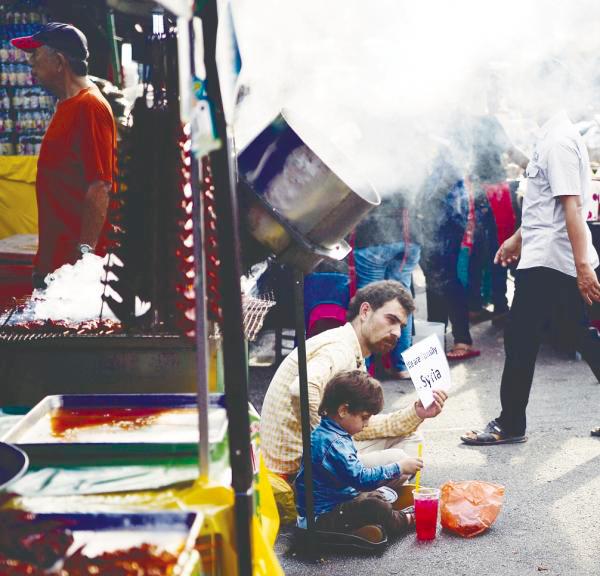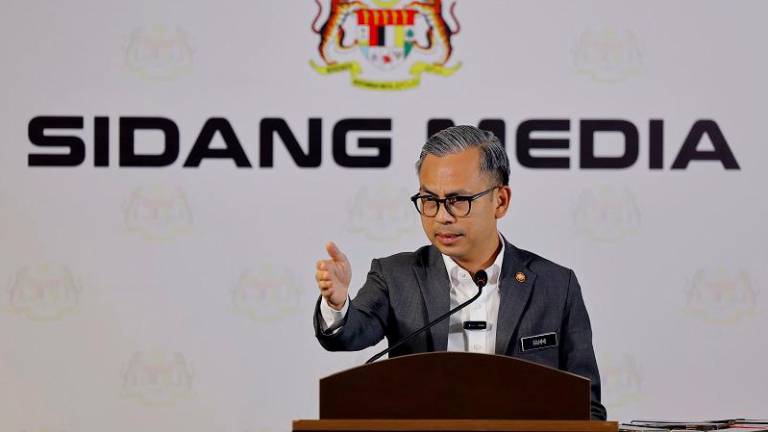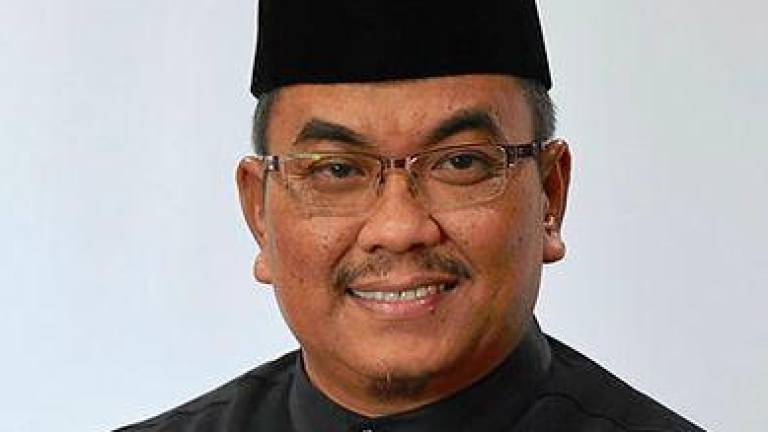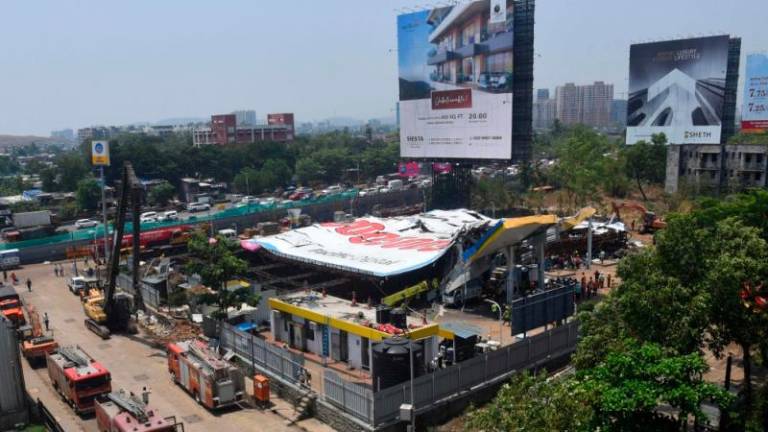PANHANDLERS are a familiar presence, whether in the bustling city of New York or the historic alleys in Paris, relying on the generosity of passers-by for survival. Yet, amid this global phenomenon of panhandling–an act of soliciting small donations from strangers–a distinct subset of individuals that garners less attention but faces equally complex challenges are foreign beggars.
Malaysia, too, is plagued with the problem of “migrant beggars”. Despite numerous attempts to mitigate this problem, the population of foreign beggars within our borders appears to be growing to the extent that it has become a “hot topic” for media criticism and discussion.
However, there has been minimal exploration of the problem, especially from public and social policy viewpoints. It may be surprising but the act of becoming reflects public and social policy shortcomings.
Foreign beggars’ issues are not new, yet, panhandling here is a serious concern due to its extent. Some have expressed frustration at the persistent and aggressive panhandling while others, including merchants and shoppers, have vocalized their discomfort.
In response to complaints, certain individuals have resorted to offensive language and raising their voices to the locals.
Studies on public attitudes toward panhandling have shown that people’s beliefs are influenced by their personal experiences. Research suggests that increased exposure to panhandling is correlated with reduced sympathy toward panhandlers.
Consequently, as panhandlers become a more visible presence, frustrations among locals, driven by concerns over perceived threats, economic strain or cultural disparities have manifested in calls for authorities to deport them. This aligns with the Immigration Act 1959/63 (Act 155) Section 56 (2).
However, is deportation alone the best solution? While depor-tation may address the immediate concern, it may not address the root causes and, therefore, have a long-lasting effect.
Sustainable solution
The evolving sentiments of the local community and even some voices urging the government to provide them with work to assist their survival recognize the need for a more sustainable solution.
The Social Welfare Department recently revealed a rise in the proportion of detained foreign beggars com-pared with locals, with 380 foreigners and 180 locals, from January to August. This contrasts sharply with 2013, when the ratio was 1:4, with 194 foreigners to 854 locals.
Foreign beggars have been found sleeping on sidewalks and makeshift shelters near Central Market in Kuala Lumpur.
However, a lesser-known fact is that a significant subset of panhandlers may be residing in private homes or hotels.
Reportedly, most of the foreign panhandlers hail from neighboring countries such as Myanmar, Indonesia, Thailand, Sri Lanka and Cambodia.
The age range, gender and family status within this group exhibit a diverse mix, highlighting the varied backgrounds and circumstances that contribute to their involvement in panhandling. Their employment history often reflects them seeking livelihood opportunities in a foreign land.
These demographics set the stage to delve further into the factors influencing migration decisions. Push factors are the negative aspects of the home country while pull factors are the positive aspects of the receiving country – in this case, Malaysia.
What some foreign beggars perceive as favorable conditions – especially the so-called “professional” beggars – lie significant governance gaps and various cartels operating at border points.
The automation and digitalization of all systems of administration, including extensive use of biometrics and drones, may be one powerful and long-needed step to address this issue.
“Push” factors that motivate people to leave their home country include war and conflict, violence and persecution in Myanmar and unemployment in Indonesia and Cambodia.
On the contrary, Malaysia’s relatively stable political situation, comparably better economic and employment opportunities, favorable currency-exchange rate and better working and living conditions are “pull” factors, making it a central attraction for the low-skilled citizens from low-to-middle -income countries in the Southeast Asia region.
Malaysia’s reputation for generosity also attracts foreign beggars, who claim they can earn up to RM10,000 per month.
Currently, Malaysia is home to 182,820 registered refugees with UNHCR (United Nations High Commissioner for Refugees) as of August, mostly Rohingya from Myanmar.
Additionally, Malaysia’s porous border with Thailand has become a gateway for human trafficking syndicates, contributing to forced trafficking, the second-highest form of exploitation in 2012-2017 as noted by the Social Welfare Department.
Panhandling often seems strategic, targeting specific spots such as transit hubs, bustling sidewalks, lengthy traffic lights, popular markets and outdoor eateries where people carry change, foot traffic is high, the potential for higher donations increases, and where there is an opportunity for direct approach.
Furthermore, panhandling fluctuates, but it tends to peak during specific periods such as festive seasons.
As the streets become more crowded during the festive seasons, beggars capitalize on people’s generosity to collect maximum souls and charity.
Previously, the department recorded a three-fold increase in the number of beggars during Ramadhan. Therefore, the concern about panhandling issues is at its peak.
Internal empowerment, external control
To address the persistent panhandling problem, the government has implemented several initiatives, including regular raids and arrests, setting up Self-Development Village, and deporting foreign beggars. Despite these efforts, the problem continues to persist.
The Immigration Department handles foreign beggars, while refugees are referred to the UNHCR.
Emphasizing deportation as the primary solution without addressing the underlying reasons why foreigners resort to begging may not serve as a long-term deterrent.
This approach overlooks the root causes, leading to a “carousel” where individuals in desperate situations return or are replaced by others.
Such a blanket approach also raises humanitarian concerns as some of them may be facing life-threatening circumstances in their homeland.
As noted by Emir Research, the Rohingyas in Myanmar were already reeling from the systematic persecution, which persisted under the brief period of normal.
Furthermore, the Immigration Department may lack the expertise or resources necessary to address the fundamental social issues contributing to foreign nationals resorting to poverty, such as poverty, homelessness and exploitation.
Most importantly, if there is a lack of coordination between the Social Welfare Department and Immigration, it could result in a fragmented approach and, thus, a lack of effective response.
It is high time for policymakers to avert public fears while shifting away from blankly seeing foreign panhandlers as threatening nuisances and, instead, empowering truly vulnerable individuals to be self-sufficient.
Therefore, it is essential to adopt a two-fold strategy: “internal empowerment, external control”.
Firstly, the initiative should be undertaken to empower vulnerable individuals among the foreign beggars through opportunities for their sustainable livelihoods.
For example, tailored programs offering essential services, education, employment opportunities and social support to facilitate integration into the local community.
Food security is also one area where Malaysia can vastly benefit from an additional labor force. With agritech at help, and with minimal training, this additional labor force can help in narrowing the expanding food supply deficit.
Concurrently, stringent measures must be enforced at the border to regulate and monitor the entry of foreigners with a particular focus on identifying migrant beggars because most of the detained foreign beggars turn out to be either “undocumented” or “overstayed” in the country.
Additionally, the Immigration Depart-ment, UNHCR, Social Welfare Department and police must collaborate closely to enhance coordination and efficiency in addressing the issue of foreign beggars.
This collaborative effort requires a clear power divide and guidelines between the Immigration Department, under the Home Affairs Minister and the Social Welfare Department, under the Women, Family and Community Development Ministry.
The government should also establish accessible public complaints channels. The public is confused about which agency to contact regarding foreign beggars. This ambiguity in jurisdiction creates frustration among citizens.
Implementing an easily accessible public complaints channel will streamline communication, allowing concerned citizens to share crucial information with the authorities seamlessly.
In summary, addressing the escalating issue of foreign beggars in Malaysia necessitates a two-pronged strategy: internally empowering them through tailored programs and externally enforcing stringent border controls.
Interagency collaboration, jurisdiction clarity and the establishment of public complaints channels for streamlined communication are among the key recommendations.
Through these steps, we can move beyond the immediate concerns of deportation and toward a more compassionate and long-term solution that will benefit the nation, and recognize that every face we encounter on the street carries a unique story, struggle and hope.
The writer is a Research Assistant at Emir Research, an independent think tank focused on strategic policy recommendations based on rigorous research.
Comments: letters@thesundaily.com











